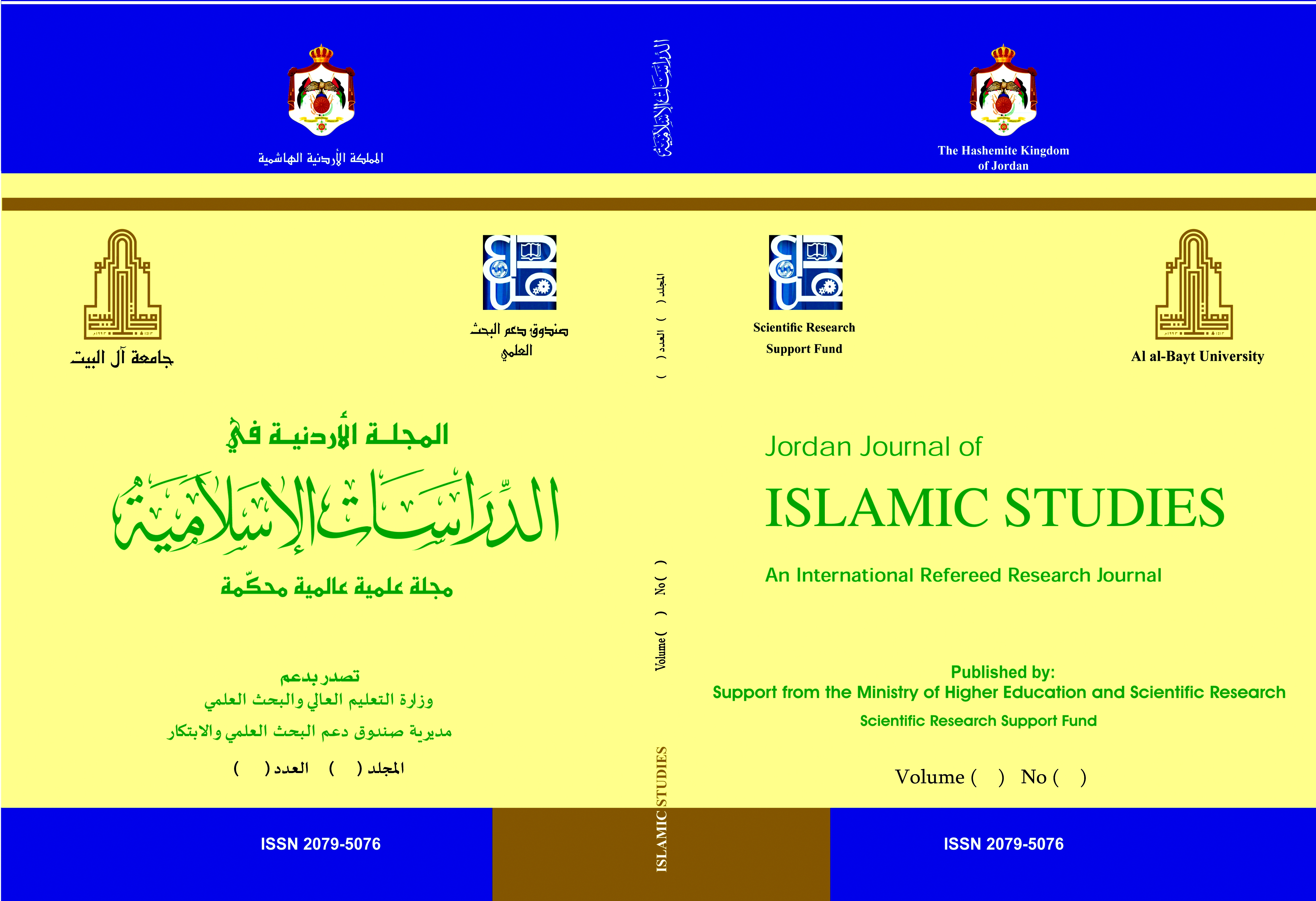Jordan Journal of Islamic Studies

Abstract
يتناول البحث مسألة تعدد الأوصياء وأحكام تصرفاتهم في القانون المدني الكويتي ومدى توافق مواده مع الفقه الإسلامي، ومقارنتها بالقوانين العربية محل الدراسة، وجاء البحث في خمسة مباحث، مبحث تمهيدي تناول معنى الوصي ودليله وحكمته والفرق بينه وبين الولي، وأما المبحث الأول تناول حكم تعدد الأوصياء في القانون الكويتي مقارناً بالشريعة الإسلامية والقوانين العربية، وأما المبحث الثاني تناول أحكام الأوصياء في القانون الكويتي مقارناً بالشريعة الإسلامية والقوانين العربية، بينما جاء المبحث الثالث متناولاً أحكام اختلاف الأوصياء في القانون الكويتي مقارناً بالشريعة الإسلامية والقوانين العربية، وأما المبحث الأخير فقد تناول أحكام الوصي الخاص في القانون الكويتي مقارناً بالشريعة الإسلامية والقوانين العربية، وكانت من أهم النتائج: إن القانون المدني الكويتي يرى جواز تعدد الأوصياء، ويرى كذلك أن الأوصياء لا يجوز لهم التفرد بالتصرف إلا إذا حدد وخصص لكل واحد منهم تصرف، وأجاز القانون للأوصياء التصرف في الأحوال الخاصة التي لا تحتمل التأخير والتي يكون فيها نفع ظاهر للصغير، وأخذ القانون الكويتي بالرجوع إلى المحكمة عند اختلاف الأوصياء؛ وذلك حفظاً لمال الصغير، وهذا موافق لمقصد الشريعة من حفظ المال، وكذلك أجاز القانون للمحكمة تعيين وصياً خاصاً للمولى عليه في حالة تعارض مصالحه مع مصالح الولي أو الوصي العام؛ وذلك تحقيقاً لمصلحته، ومحافظة على ماله.
الكلمات المفتاحية: القانون، الأوصياء، الوصي الخاص، اختلاف الأوصياء.
This research tackles the issue of the multiplicity of trustees, the provisions of their acts in the Kuwaiti Civil Law, the extent its articles comply with the Islamic jurisprudence, and the comparison between the Arab laws under study. The research includes five topics. First, it includes an introductory topic dealing with the meaning of the trustee and its evidence and wisdom and the difference between the trustee and the guardian. The first
topic deals with the provision of multiple trustees in the Kuwaiti law compared to the Islamic Sharia and the Arab laws; the second topic deals with the provision of trustees in the Kuwaiti Law compared to the Islamic Sharia and the Arab laws; the third topic deals with the provisions of the difference among the trustees in the Kuwaiti Law compared to the Islamic Sharia and the Arab laws, and the final topic deals with the provisions of the special trustees in the Kuwaiti Law compared to the Islamic Sharia and the Arab laws. The most important findings reveal that the Kuwaiti Civil Law authorizes the multiplicity of trustees and believes that the trustees may severally act only if such acts are specified and assigned to each of them. It also shows that the Law permits the trustees to act in special cases that cannot be delayed and in which there is an apparent benefit to the young child. The Kuwaiti Law stipulates that when the trustees differ, the matter shall be referred to the court to preserve the child's money, and this goes in line with the Sharia's purpose for preserving the money. In addition, the Law authorizes the court to appoint a special trustee for the minor in trust whenever his interests conflict with the interests of the guardian or general trustee to achieve the child's interests and preserve his money. Keywords: Law, Trustees, Special trustee, Difference among the trustees.
Recommended Citation
Al-Rashidi, Ali Abd alrahman and Mansour, Mohammed Khaled
(2022)
"تعدد الأوصياء على المولى عليهم في القانون المدني الكويـتي - دراسة فقهية تحليلية مقارنة بالقوانين العربية- The Multiplicity of Guardians in the Kuwaiti Civil Law: An Analytical Juristic Study Compared to Arab Laws,"
Jordan Journal of Islamic Studies: Vol. 18:
Iss.
4, Article 8.
Available at:
https://digitalcommons.aaru.edu.jo/jois/vol18/iss4/8

